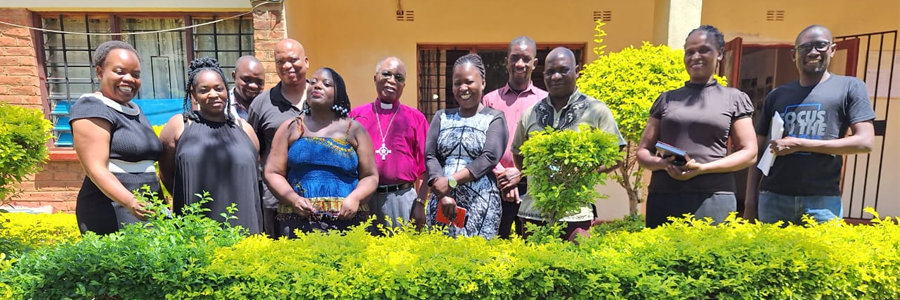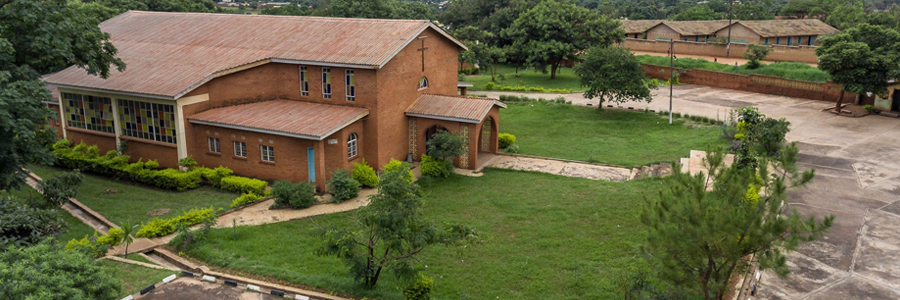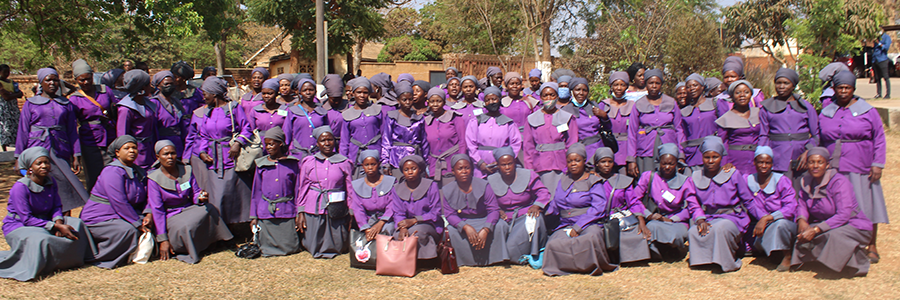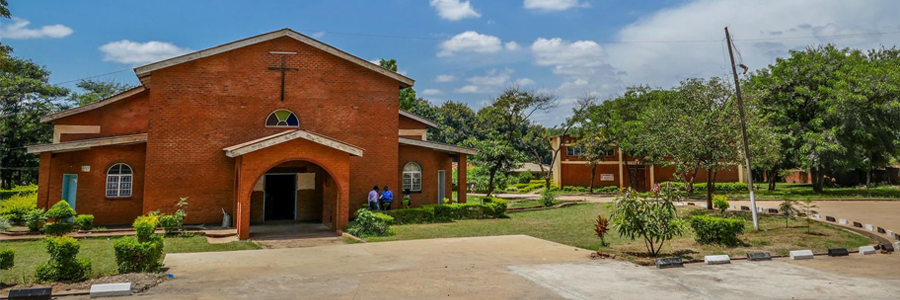



The Evangelical Lutheran Church in Malawi (ELCM) is one of rapid growing churches on the Continent of Africa. It was established on 21st November 1982 a group of lay people some of whom had returned work in neighboring countries where Lutheranism has been practiced. The first service was held in a house of one of the key-founding members the name of Gilbert Steven Msuku now late, in the city of Lilongwe and later on moved into classroom at Lilongwe Government Primary School. Rev. Gilbert S Msuku then Mr. Msuku was the founding Chairman and then Mr. J. P. Bvumbwe now the Presiding Bishop was the Secretary of the group. The Headquarters of the new church was in Lilongwe.
In 1983 Evangelical Lutheran Church in Tanzania was contacted to send its Pastors to come and assist. Rev. Makanta now late, accepted and became the visiting missionary, in the same year; a temporal church building was constructed at Mbidi Congregation in Zomba the Southern part of Malawi. In 1985 Evangelical Lutheran Church in Zimbabwe sent a group of people to Malawi to assist in evangelism. At the end of the same year Dean Tosten Ellwyin from Umpumulo Theological Seminary in South Africa was asked to come to Malawi to conduct leadership Seminar. In 1986 Rev. Stegmier from Germany and later Rev. Kinyamasongo from Evangelical Lutheran Church in Tanzania (ELCT) came to teach and do pastoral work. In January 1987 the first three local pastors were ordained into Holy Ministry and these were Rev. Joseph. P. Bvumbwe the current Bishop, Rev. Mixon Mbewe retired and late Rev. Amon. D. Joshua Phiri. They were ordained at the St. Peter’s Anglican Church in Lilongwe Bishop Robinson of Evangelical Lutheran Church in Botswana. In 1988 the late Mr. Joel Ngaiyamu from ELCT came to conduct leadership seminar. Late in 1988 Church leadership changed from laity to clergy known as the Senior Pastor as leader of the church. In the same 1988, ELCM became a member of Lutheran World Federation (LWF). In 1989 Lutheran World Service –LWS office was established in Malawi as a response to the call of ELCM.
During the same year ELCM became a member of Christian Council of Malawi. In 1990 Evangelical Lutheran Mission in Hermannsburg- Germany sent Rev. Martin Schweitzer as a missionary to support mission work in Malawi. In 1991 Lutheran Evangelical Association of Finland sent a Missionary Rev. A. Kujapa to Malawi to do Pastoral work.
Currently the Church runs 13 Primary Schools, 1 Secondary School in the Northern Region, a Lay Training and Vocational Centre in Madisi -Dowa. It also runs a Health Centre at Madisi and Mobile Health Clinics, One in each region of the country. 120 Feeding Centers across the country. Some of the Programmes in which the church is involved in are; Malaria, Climate Change and Mitigation, HIV and AIDS interventions, Diaconal work in general, Health and Sanitation, Food Security, Water Provision drilling boreholes, just to mention but a few. The church has over 400 Congregations and Preaching Points, with 72 Parishes and Mission Areas.
The church is currently divided into 21 Deaneries with 56 total number of Pastors including the 2 Bishops.
ELCM believes that faith lived out in action is in misaction. As the church’s mission is holistic; it does preach, teach the true word of God and administer Holy Communion, but also focus the person wholly and how it could reach to the masses through different channels of communication.
The Mission of the ELCM is to glorify and praise the Name of the Triune God:
A just and peaceful Church where every member attains quality life God’s Grace in Jesus Christ
ELCM strives to be a wellspring of God’s grace in Jesus Christ. A wellspring is an original and bountiful source offering a continual supply of something.
Through participatory approach, ELCM arrived at considering the following core values /principles to guide and provide conceptual frame work upon which the strategic thinking and planning has anchored, hence the following values/principles underline ELCM’s standards of belief that have been adopted to manage, govern and shape the way in which it presents and acts as an organization in pursuing its vision, and mission.
Christian Love: ELCM being a Christian institution, believes that the love of Christ manifest in every one. It recognizes that a Christian is a disciple of Jesus Christ who was sent God the Father to reconcile fallen humanity to himself through his suffering and death on the cross. Furthermore, it follows theological stand of Christian love of having two dimensions; first, love for God the Creator of the World, secondly: love for fellow human beings who are created in the image of God (Mat 12:29-31). It is manifested through patience, kindness, compassion, selflessness and humility. It whatever kind of service ELCM renders, it shall ensure that all her engagements within the church and various stakeholders be informed all virtues that demonstrate love.
Integrity: ELCM promotes integrity. This is a basis upon which trust can be built (Proverbs 11:3). It calls for honesty, good stewardship including prudent management of resources. ELCM shall ensure that all her dealings and interactions with stakeholders shall be done with integrity.
Unity: ELCM through its leadership strengthens issue of unity. This is a cornerstone for harmonious co-existence and source of strength. It is one church and geared towards three Dioceses in the near future but under one leadership (Presiding Bishop). ELCM acknowledges that all human beings are created in the image of God and have equal dignity and rights.
Justice for all: ELCM recognizes the fact that every person is created in God’s image and is gifted with talents and capacities and has dignity irrespective of social status, gender, ethnicity, age, ability or other differences. Hence, her commitment to human rights and justice means that it works on the underlying causes of poverty and exclusion for a more equitable distribution of power, resources and opportunities. (Psalms 99:4, Gal 3:26 28).
Ecumenism and Partnership: ELCM works with ecumenical partners in mission, diaconal and advocacy activities. It will continue its commitments to long term partners in search for Christian unity and to our emerging relationships with other Christian families and civil society to build mutual understanding in growth and growth in communion. This calls upon ELCM members and staff to be welcoming, constantly seek opportunities for synergy, and be open to cooperation with other churches. (Acts 8:26 -40; Ecc. 4: 9-11).
Inclusion and Participation: ELCM promotes inclusiveness and participatory processes, a people-centered approach, and a focus on gender awareness and people with disabilities, networking and engagement in partnership and collaboration leading to sustainable development, characterize ELCM programs. It is of necessity that ELCM with its members and surrounding communities, be accommodative, non-stigmatizing and non-discriminating, promoting equal participation, sensitive to the context of operation. (Mat 22:9).
Accountability and Transparency: ELCM maximizes its service capability through responsible stewardship of all entrusted resources from within and outside the church. (Acts 5:1-11; Roman 3:19; Ezekiel 33:6).